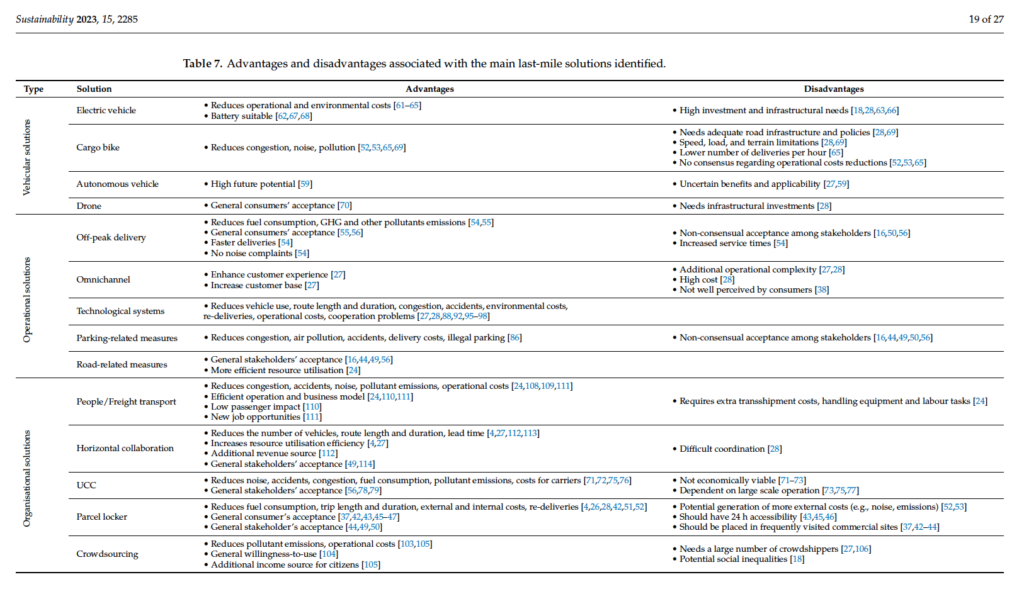Globalization, urbanization, and the recent COVID-19 pandemic have raised the demand for logistic activities. This change is affecting the entire supply chain, especially the last-mile step. This step is considered the most expensive and ineffective part of the supply chain and a source of negative economic, environmental, and social externalities.
A publication by Portuguese researchers aims to characterize the sustainable urban last-mile logistics research field through a systematic literature review (N = 102). This comprehensive and holistic review was organized into six thematic clusters that identified the main concepts addressed in the different areas of the last-mile research and the existence of 14 solutions grouped into three types (vehicular, operational, and organizational solutions).
However, many (relevant and more recent) publications have not been reviewed. Therefore, the publication might be a good first analysis to support students looking for last-mile solutions. But, students need to look at more recent publications as well.

The review’s findings are that there are no ideal last-mile solutions. Instead, their limitations should be further explored by considering the so-called “triple bottom line of sustainability,”; the integration and combination of multiple last-mile alternative concepts, or by establishing collaboration schemes that minimize the stakeholders’ conflicting interests.
Source: Silva, V.; Amaral, A.; Fontes, T. Sustainable Urban Last-Mile Logistics: A Systematic Literature Review. Sustainability 2023, 15, 2285. https://doi.org/10.3390/su15032285
